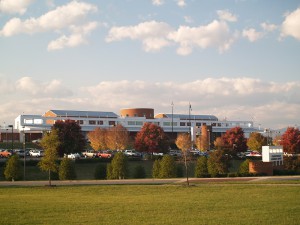The entrepreneurial spirit is alive and well in central Virginia. The City of Charlottesville—ranked #4 on ValuePenguin’s Best Cities for Small Business and on Livability.com’s 50 Best Cities for Entrepreneurs—is home to both the annual Tom Tom Founders Festival, which celebrates and rewards innovation, and the Community Investment Collaborative, which supports small businesses.
If you are a business owner and are perusing real estate in central Virginia, you may be interested to know the business license requirements and fees according to the different counties. Whether you already live in central Virginia and are interested in relocating or expanding your business in another county, or whether you are exploring business opportunities in central Virginia for the first time, we have pulled together some information to help you compare and contrast the requirements among the counties. (Please note that most central Virginia counties that require businesses to have a license set a March 1 deadline for application or renewal.)
Albemarle
Before acquiring a business license in Albemarle County, you will first need to register the business name with the Clerk of the Circuit Court, find out whether your type of business (partnership, LLC, etc.) is required to register with the Virginia State Corporation Commission, and acquire zoning clearance from the Community Development Department. Albemarle County requires that businesses renew their license every year by March 1. For businesses with gross receipts between $5,000 and $100,000, the license fee is $50. For businesses with gross receipts of $100,000 or more, business owners will need to calculate the fee based on figures detailed on the business license application.
Augusta
In order to obtain an Augusta County business license, you first need to apply for a zoning certificate and register the name of your company with the Community Development office. All businesses must renew their license each year by March 1.
Greene
In Greene County, you must apply for a business license from the Commissioner of Revenue. The license fee is based on both gross receipts and your type of business (retail, contracting, etc.), and you must renew your license every year by March 1.
Louisa
Louisa County does not require a business license for any business to operate within the county unless you are a contractor. In order to obtain a Contractor’s License in Louisa, the contractor must first be licensed in the state of Virginia. The fee for the Louisa County Contractor’s License is based on gross receipts of the previous year.
Nelson
Nelson County requires businesses to apply for and annually renew their business license with the Commissioner of the Revenue’s office by March 1.
The following central Virginia counties do not have a business license requirement:
Fluvanna
Orange
Madison


